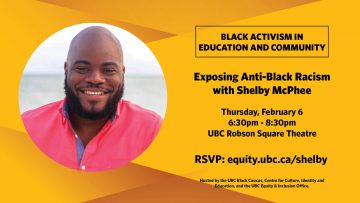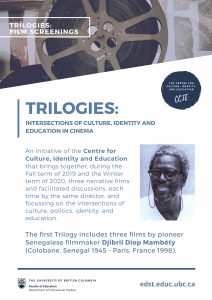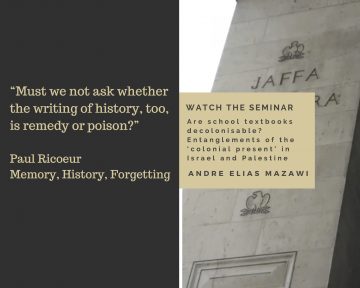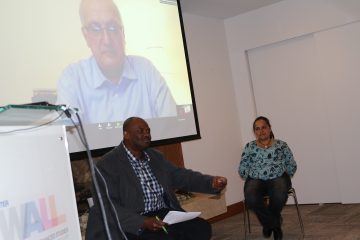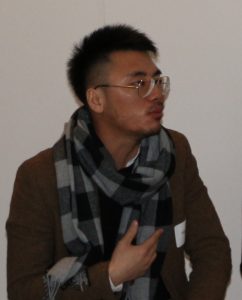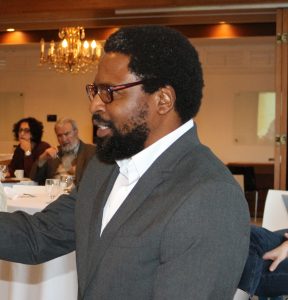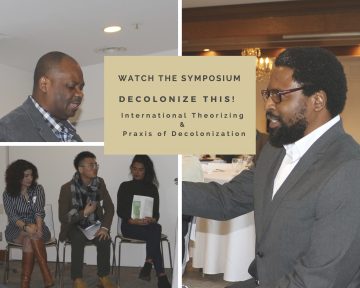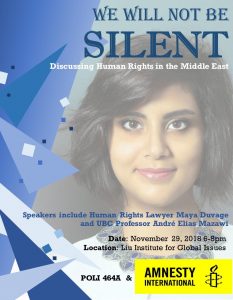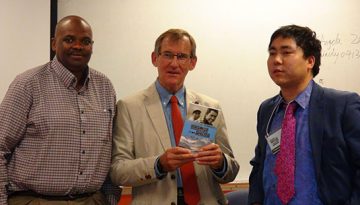CCIE’s first Trilogy: 3 films by Senegalese filmmaker Djibril Diop Mambéty
TRILOGIES: Intersections of culture, identity and education in cinema (Organized by André Elias Mazawi)
“Trilogies” is a CCIE initiative that brings together three narrative films, each time by the same director, and focussing on the intersections of culture, politics, identity, and education.
Each screening is followed by a facilitated discussion which will examine intersections of culture, identity and education issues reflected in the screenings.
The first Trilogy includes three films by pioneer Senegalese filmmaker Djibril Diop Mambéty (Colobane, Senegal 1945 – Paris, France 1998).
Watch: “Decolonizing Higher Education Internationally” (panel)
Decolonizing Higher Education Internationally
“The enduring educational challenges of setting horizons of hope beyond modern-colonial imaginaries” by Vanessa de Oliveira Andreotti (UBC)
“What Does it Take to Decolonize Palestinian Higher Education? ” by André Elias Mazawi
“Youth Activism and Academia as Public Sphere” by Handel Kashope Wright.
Watch: “Look! Listen! Speak! Eat! : Chinese Pride on the Table” by Yao Xiao
I take this presentation as an opportunity to share with you how “decolonization” might be Sinicized, and how a Chinese subject like myself might engage with decolonization differently. Based on autobiographical stories, research projects, and informal conversations with community friends, I unpack the affect of Chinese pride for its decolonial relevance in at least two landscapes: (1) in a landscape of international intellectual work, the anxiously ascending Sinophone interests in dealing with/learning beyond Euro-American academic influences; (2) in a landscape of grassroots lives and activism, the mixed compassion, commitment, as well as confusion in speaking with/learning from people who situate and still struggle in webs of metropoles and margins.
“Decolonization: Myth and Reality” by Uchenna Okeja
Theories and practices of decolonization vary across the world. The meaning of the concept is also a matter of contestation. To get to the core of the phenomenon, I propose to consider it as both myth and reality. In this lecture, I examine the ways theories and practices of decolonization across the world are both myth and reality. The argument I make is that the theories and practices of decolonization must cut through their myth to get to the reality they seek. Drawing on the example of South Africa, I conclude with a brief reflection on how this goal can be achieved.
Watch the Symposium: Decolonize This! International Theorizing and Praxis of Decolonization
The Centre for Culture, Identity and Education, in collaboration with the Peter Wall Institute for Advanced Studies at UBC, organized a symposium on decolonizing approaches to culture and education, at the Peter Wall Institute on November 26th, 2018.
We Will Not Be Silent: Discussing Human Rights in the Middle East
Dr. André Elias Mazawi, EDST, UBC, speaks at the Liu Institute for Global Issues.
Watch: “Escape from Tibet” Book Discussion
Each year, thousands of Tibetan refugees, many of them children, risk death from exposure and frostbite to escape political oppression by climbing over the highest mountain range in the world, the Himalayas. Nick Gray, an author and television producer who has been making award-winning documentaries for more than 30 years, captured this journey in his risky 1997 film Escape from Tibet. Among the group of refugees he followed were Pasang and Tenzin, young brothers who became the focus of the film that Gray has now turned into a book: an “astonishing true record of endurance, of the triumph of the human spirit, told as a real-life adventure story.” Tenzin joins Gray to talk about their collaboration, their journey and where the brothers are today.
Watch: We Too Are “ IDLE NO MORE”: Closing Plenary – UBC Indigenous Initiatives
We Too Are “ IDLE NO MORE”: UBC’s Non-Indigenous Scholars and the Politics of Engaging Indigeneity
Closing Plenary: UBC Indigenous Initiatives
Chair: Handel Wright
Presenters: Anna Kindler – Vice Provost, Academic & Linc Kesler – Senior Advisor to President on Aboriginal Affairs.
